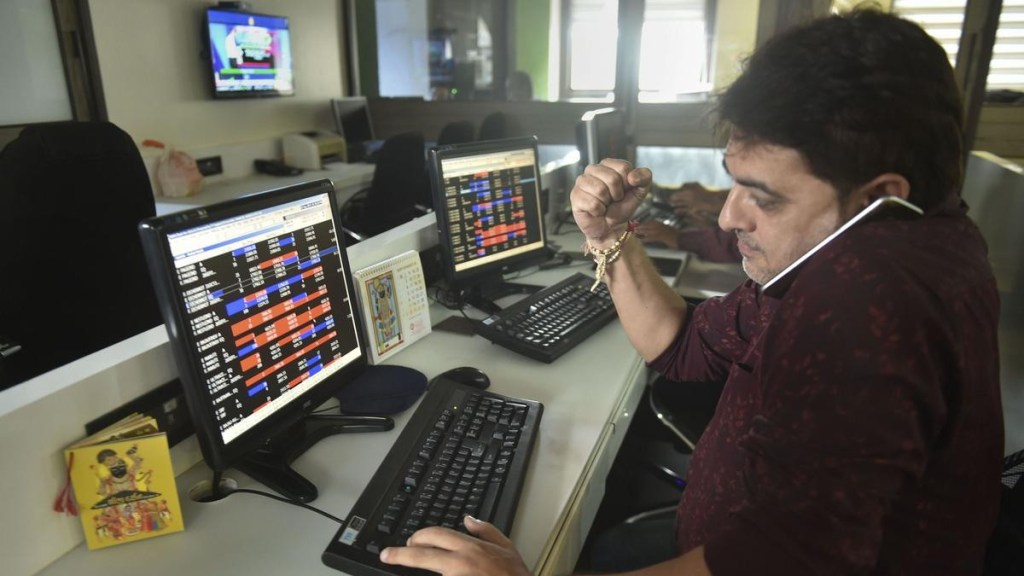Foreign institutional investors (FII) purchased shares worth net Rs 550.19 crore, while domestic institutional investors (DII) added shares worth net Rs 609.82 crore on November 15, 2023, according to the provisional data available on the NSE.
For the month till November 15, 2023, FIIs sold shares worth net Rs 7,054.08 crore while DIIs bought shares worth net Rs 7,562.29 crore. In the month of October, FIIs offloaded shares worth net Rs 29,056.61 crore while DIIs added equities worth a net Rs 25,105.86 crore.
“Domestic equities surged higher fuelled by moderation in both India as well as US inflation. Nifty opened gap up and strengthen during the day to close near day’s high with gains of 232 points (1.2%) at 19675 levels. All sectorial indices, including broader market ended in green. IT, Realty, Oil & Gas and Auto were top gainers today. Rally was seen in global markets after weak US inflation data raised hopes that interest rate-hiking cycle has reached its peak. Additionally, news of fresh stimulus in China and sharp fall in UK’s inflation boosted the sentiments. We expect market to maintain its momentum, driven by positive domestic data, cooling off US bond yields and dollar index,” said Siddhartha Khemka, Head – Retail Research, Motilal Oswal Financial Services.
Foreign institutional investors (FII) or Foreign portfolio investors (FPI) are those who invest in the financial assets of a country while not being part of it. On the other hand, domestic institutional investors (DII), as the name suggests, invest in the country they’re living in. Political and economic trends impact the investment decisions of both FIIs and DIIs. Additionally, both types of investors – foreign institutional investors (FIIs) and domestic institutional investors (DIIs) – can impact the economy’s net investment flows.

